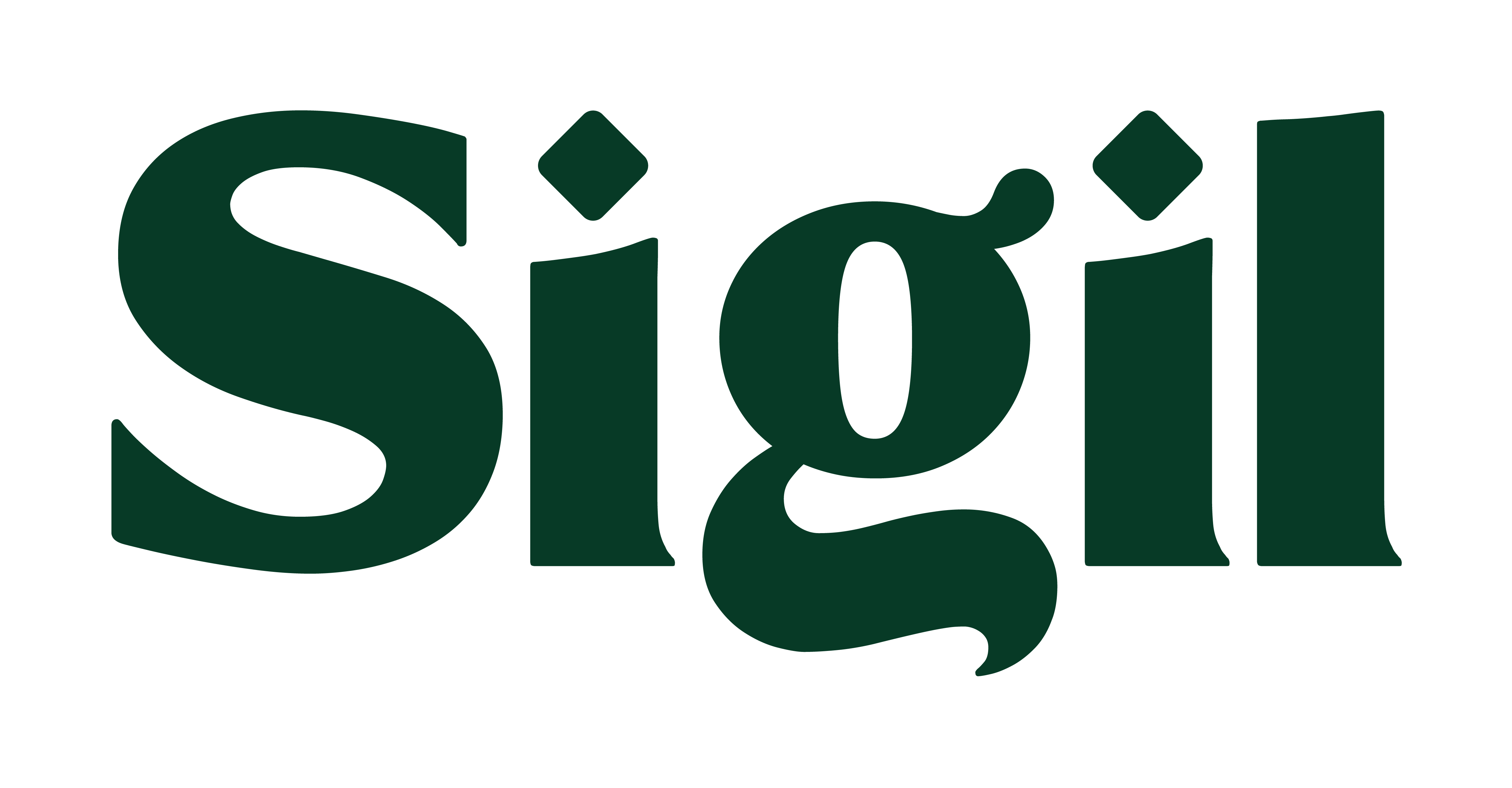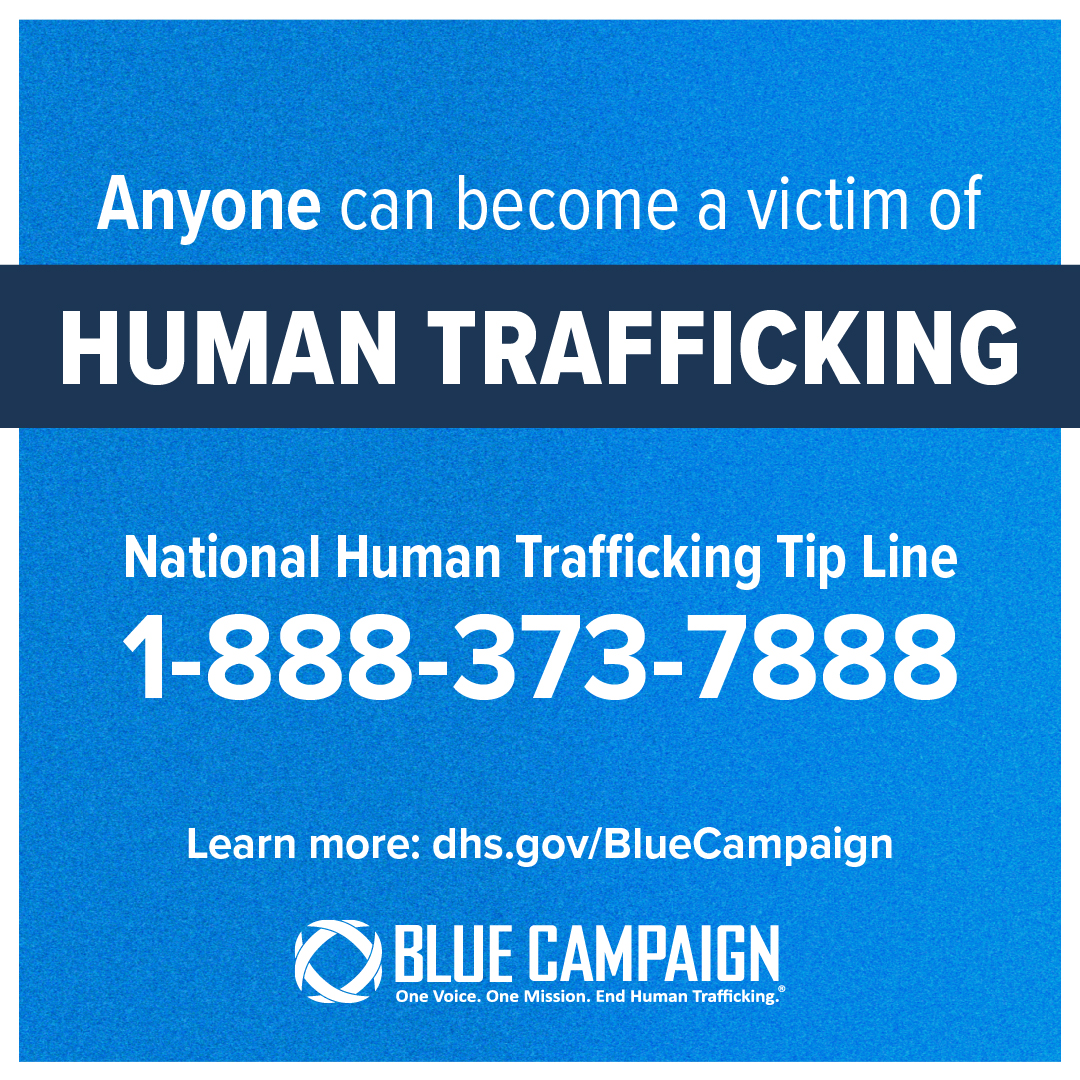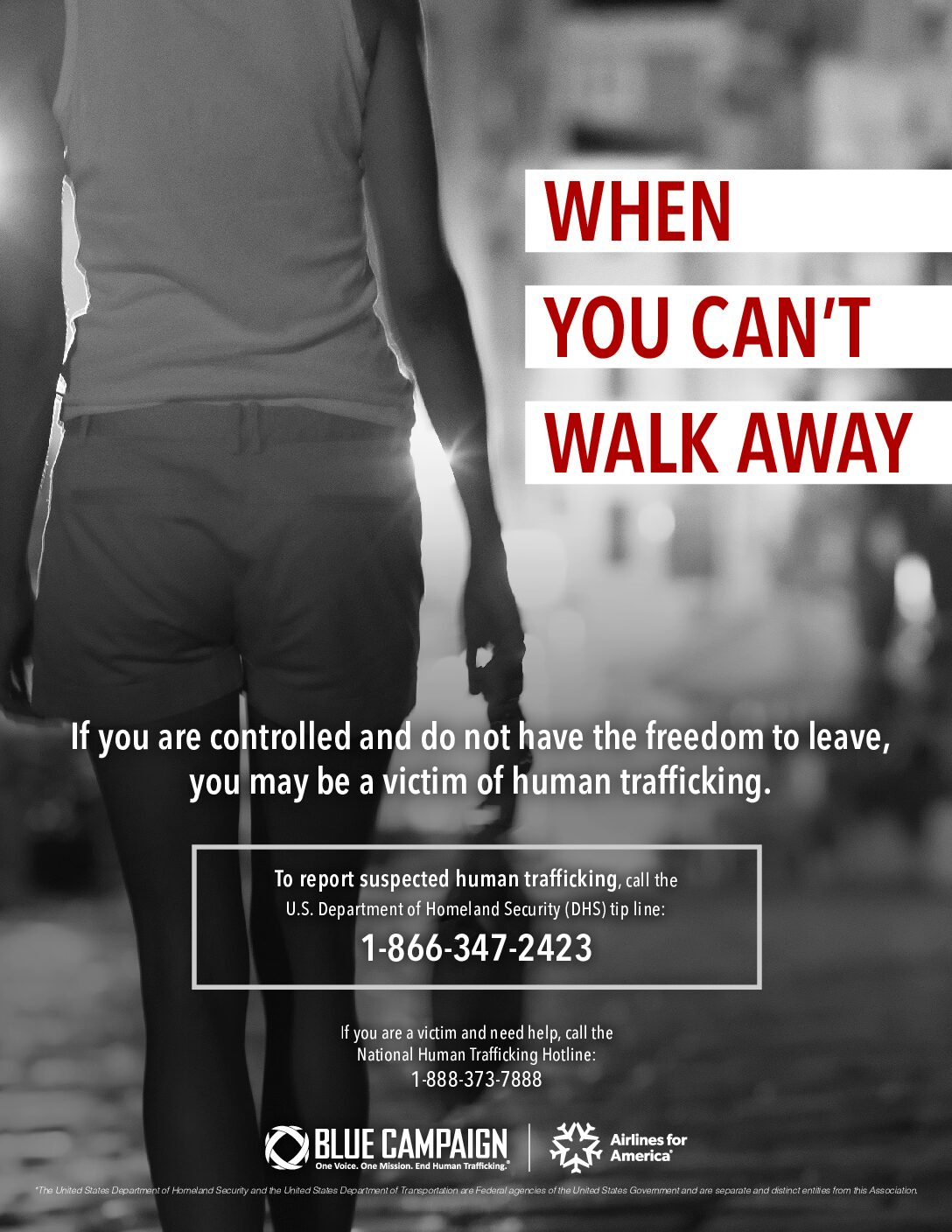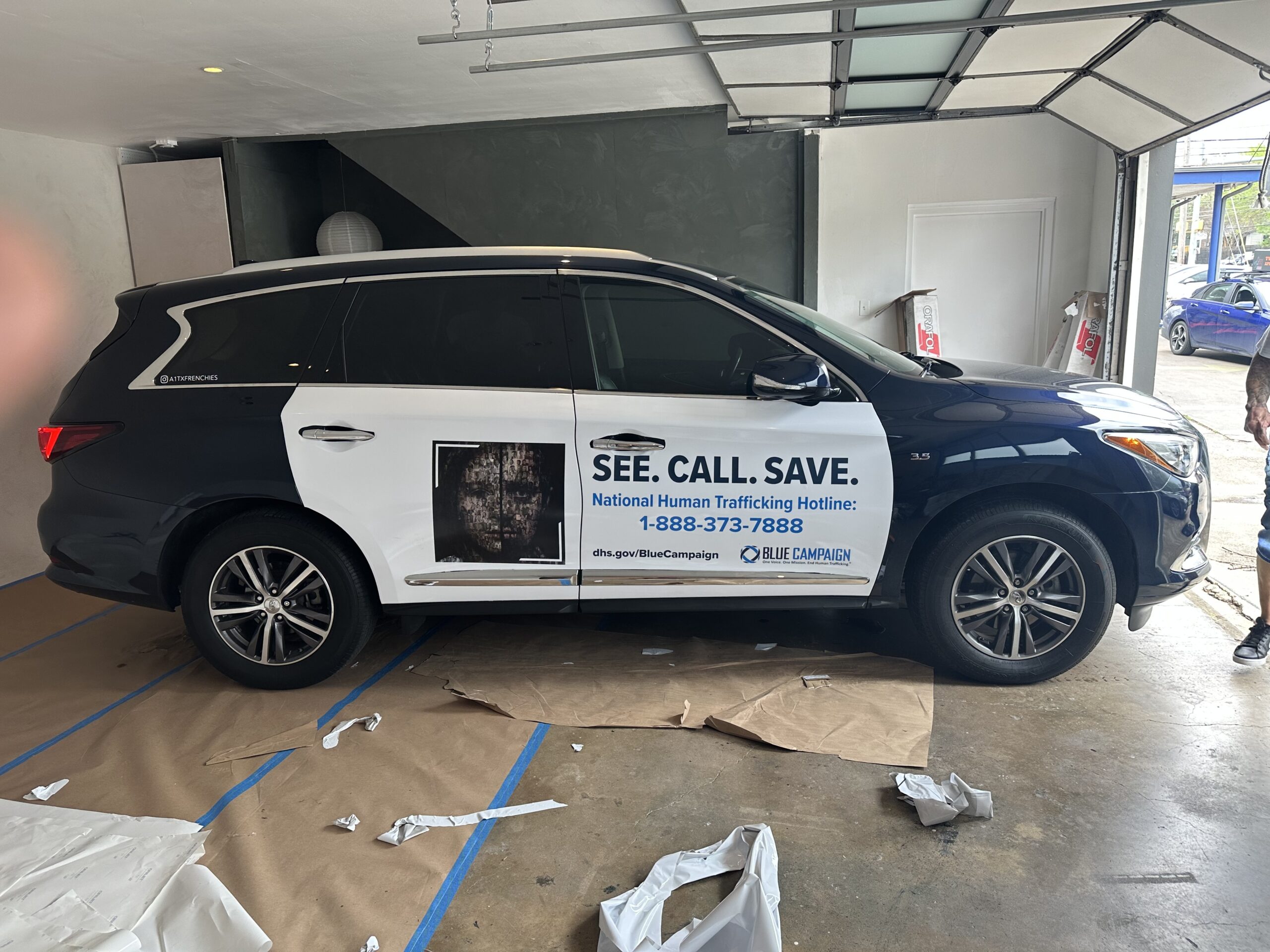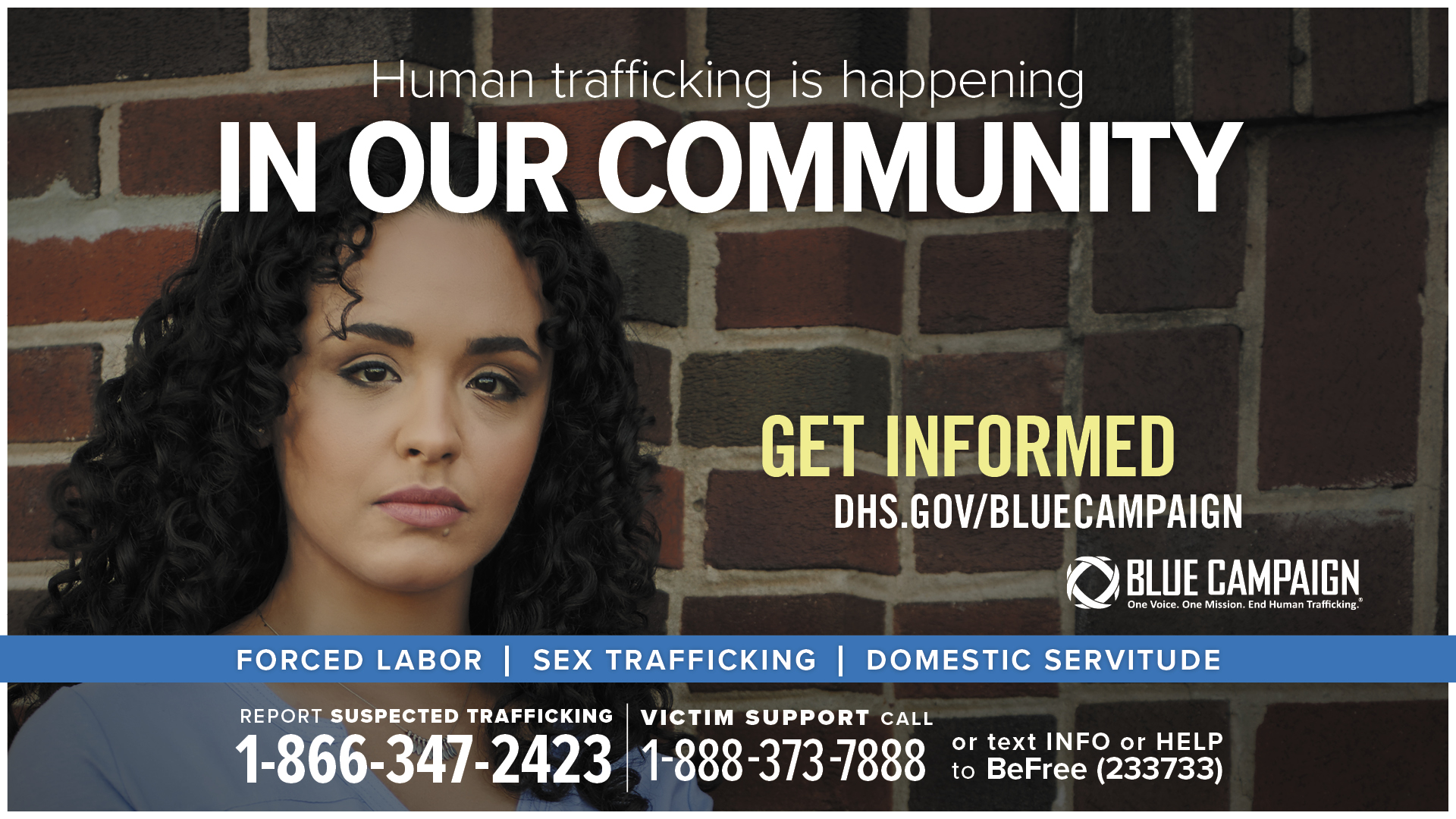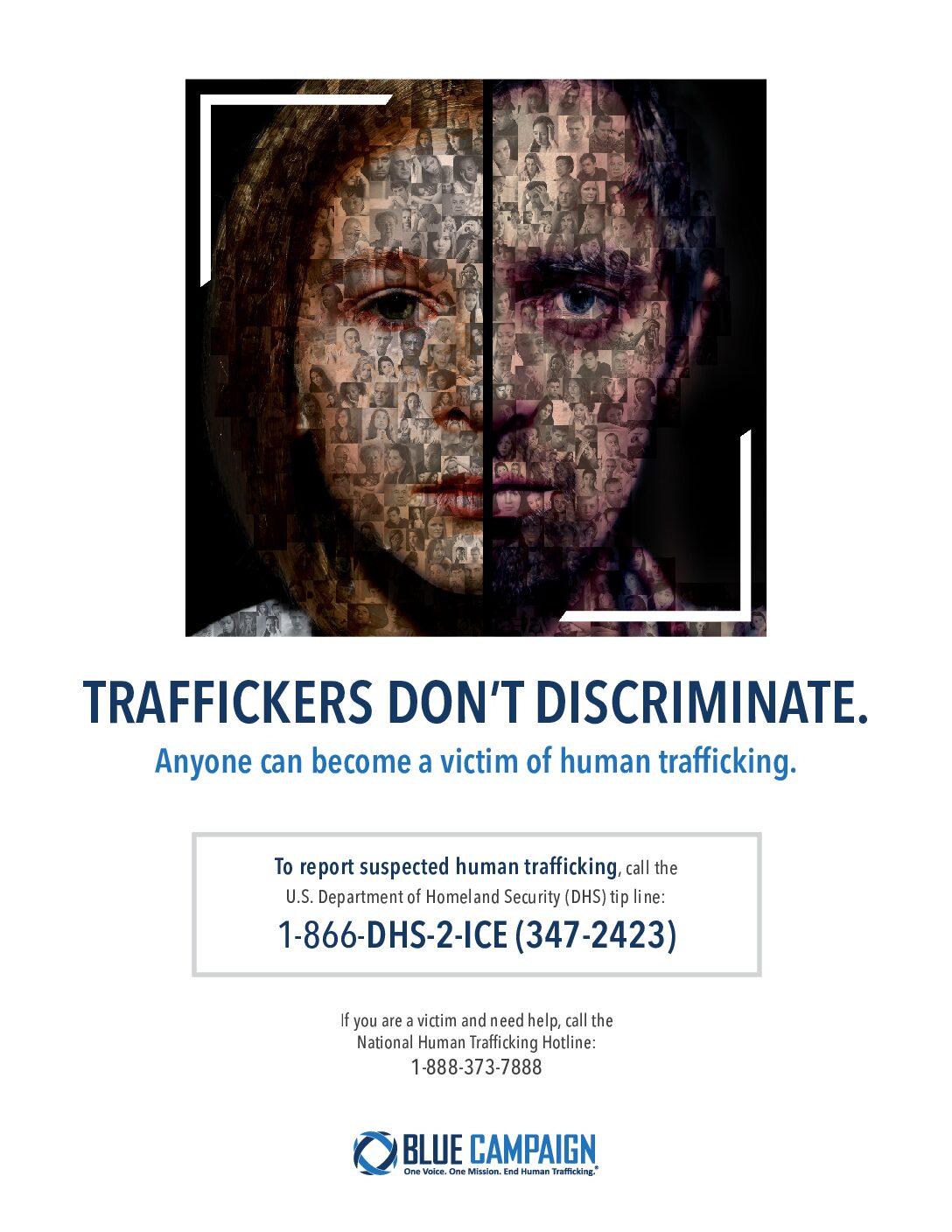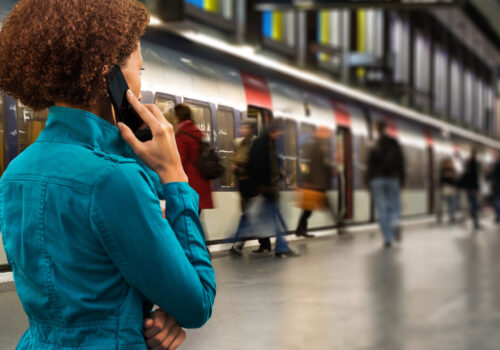
U.S. Department of Homeland Security
Services.
- Strategic communications
- Creative development
- Research
- Social media
- Video
- Content development
- Outreach
- Events
- Paid media
- Radio media tours
- Web development
- Partnership engagement
The story.
Anyone can become a victim of human trafficking, regardless of their age, race, gender, or nationality. Victims may be made to work at farms, factories, or strip clubs; forced into commercial sex; or abused in a home as a domestic servant. Although human trafficking is a hidden crime, it is not invisible. The Department of Homeland Security (DHS) launched the Blue Campaign in 2010 to bring this crime out of the shadows. Through this national public awareness effort, federal agencies, first responders, health care providers, social welfare agencies, businesses, and members of the public learned how to both recognize the signs of trafficking and report it. As the campaign entered a new phase, DHS needed to know which campaign elements were and were not working. In 2016, DHS brought in DCG to leverage a research-based, data-driven approach to increase the campaign’s efficacy.
Solution.
DCG first developed a five-year communications strategy with detailed annual plans for social and digital media, paid advertising, special events, promotion of Spanish-language materials, and partnership outreach. The overarching objectives for each plan included:
- Increasing the number of partners involved in promotional activities.
- Driving more traffic to the campaign website.
- Improving the return on investment for paid ads.
From the onset of the contract, DCG worked with DHS to identify campaign outputs, outcomes, and impact measurements. All plans and tactics, as well as the content and visuals of the static, animated, and video ads, were based on findings from multiple focus group sessions and survivor feedback.
An analysis of outcome indicators identified trends in paid and organic social media tactics, as well as content performance, guided content strategy, and direction, ensuring month-over-month and year-over-year performance and budget optimization. Through this approach, DCG launched a keyword search advertising campaign that garnered nearly 500,000 impressions and a 4.27% clickthrough rate, driving 935 phone calls to the National Human Trafficking Hotline.
DCG also executed a seven-month lead generation newsletter subscription campaign, driving newsletter signups via Facebook and display advertising tactics. The campaign netted about 70,000,000 impressions and over 260,000 clicks, and collected over 46,000 email addresses at an efficient rate of $3.88 per email.
Recognizing the value strategic partners provided in reaching audiences not readily available to DHS, DCG formed approximately 2,400 strategic stakeholder relationships. DCG then shifted its emphasis from acquiring new stakeholders to building deeper relationships with existing partners, engaging them in more meaningful collaborations (including Facebook Lives, event support and presentation, and input into campaign content). Through its strong relationships, DCG maximized Blue Campaign’s reach and influence among the following audiences:
- Vulnerable populations and their peers, parents, and teachers.
- Specific industries and their front-line employees.
- Federal, state, local, tribal, and territorial law enforcement officials.
Impact.
- Generated 40.8 million impressions through the #WearBlueDay hashtag campaign, as well as garnered more than 103.4 million impressions and over 10,000 uses of the hashtag by more than 6,400,000 unique users in 2022.
- Delivered more than 212 million impressions across 13 nationwide paid media campaigns, driving over 2.7 million clicks to the campaign website in 2022.
- Increased Blue Campaign’s Instagram channel following by 36% through easy-to-understand content, strong visuals, and effective paid social campaigns.
- Surpassed 100,000 subscribers to the monthly Blue Campaign newsletter.
